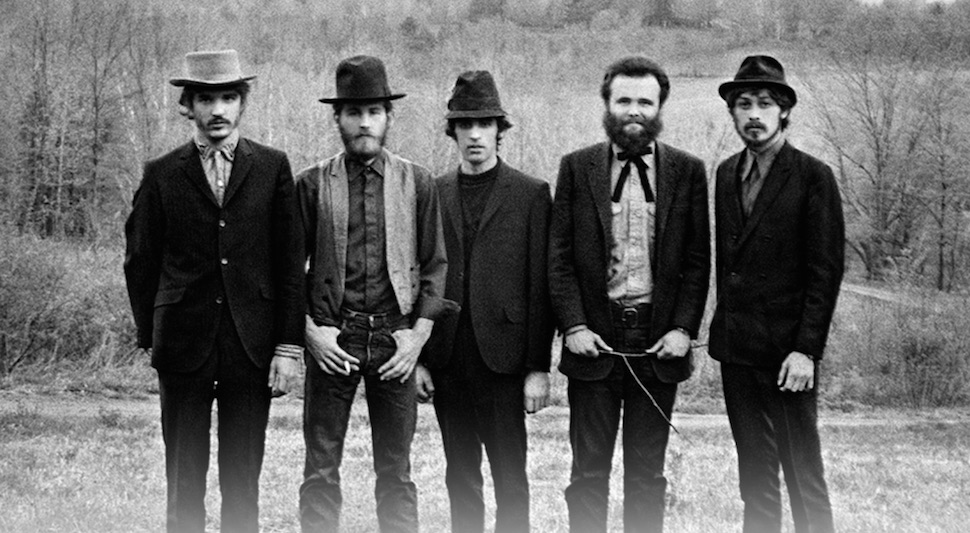History, as they say, is written by the victors. So, here comes Daniel Roher’s Once We Were Brothers: Robbie Robertson and The Band (which just opened the Toronto International Film Festival) which, frankly – with three members of The Band no longer with us and Garth Hudson not participating in new interviews – is very much Robbie Robertson’s version of the history of The Band. This would be very much like watching a documentary called Paul McCartney and The Beatles. Which, fine! But it would also be very difficult to accept that as the definitive documentary on The Beatles without John Lennon’s version of what happened. (And at least with the Beatles Anthology, George Harrison and Ringo Starr were there to say, “I don’t know if that’s quite the way it happened, Paul.”)
While watching Once We Were Brothers: Robbie Robertson and The Band (a movie, I confess, I was very much looking forward to), I couldn’t help but think of a much better rock documentary about the same era from earlier this year, David Crosby: Remember My Name. These two documentaries exist as polar opposites of one another. We watch Crosby, painfully, talk about his life in an open, honest, no-fucks-given way – admitting there are just too many relationships he’s burned over the years that there’s no way he’s not the problem. David Crosby: Remember My Name is a gift of a rock documentary, forever there as a reference guide to a particular era and scene with the subject at hand being as truthful, or at least as truthful as he can be.
With Robertson, even the title is a little off-putting, almost renaming the group with his name front and center. No one doubts Robertson was a driving force behind the success of The Band and, yes, wrote most the songs (which he reminds us of many times), but this film does Robertson a disservice. Before the film I had generally positive feelings toward Robertson, but Once We Were Brothers: Robbie Robertson and The Band is so blatantly pro-Robertson I came out of it thinking, “Boy, this guy sure feels guilty about something.”
The closest thing we get to the heart of the conflict comes with the relationship between Robertson and Levon Helm, who died in 2012. Helm is portrayed as a fun-loving galoot who just couldn’t keep his shit together, then descending into a life of anger and jealousy toward Robertson – which just feels totally unfair since Helm isn’t around anymore to defend himself. There’s one lone talking head there to defend Helm – and mention Helm’s desire that Robertson share more of the songwriting credits and its financial windfall with the rest of The Band. Of course, then Robertson stacks the deck with his current famous friends to proclaim, no, Robertson deserves those credits and the rest of The Band only did some tinkering here and there with Robertson’s genius.
The most telling moment of the documentary comes when Robertson says The Band never reunited after its 1976 farewell concert – filmed by Martin Scorsese for The Last Waltz; Scorsese is a producer on this film – but never mentions The Band did reunite, just without Robertson. Before watching this documentary, I just assumed the relationship between the members of The Band was complicated. And that happens a lot. Now, I’m fairly convinced the other members of The Band hated Robertson.
On the documentary about David Crosby, he tells us, yes, point blank, the Byrds kicked him out of the band for being an asshole, and today the other members of Crosby, Stills & Nash won’t speak to him. And here’s Crosby, accepting most of the blame, to a bunch of strangers watching a movie about his life. Once We Were Brothers: Robbie Robertson and The Band should never had been made without Garth Hudson’s input. And, look, I’m sure an attempt was made, but I think I’d rather watch a documentary about why that didn’t happen than the movie we got here.
The film’s biggest tell comes in its closing moments, as we hear The Band perform in all its glory, followed by a still photograph of each member. Levon Helm, Rick Danko, and Richard Manuel only get text revealing their year of birth and year of death. The only thing we learn about Garth Hudson’s current life is that he lives in Woodstock, New York. But then we get to Robertson and we learn about all the wonderful things he’s done and is still doing.
Again, no one is discounting what Robbie Robertson has done for rock music, but in this documentary it comes at the expense of the other members of The Band.
You can contact Mike Ryan directly on Twitter.







